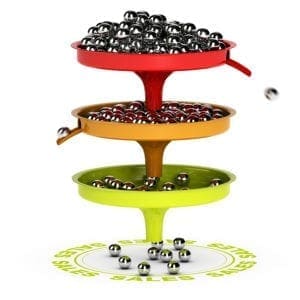 Being present on social media sites is a given. Each platform has its own characteristics, driving and targeting various consumer segments. Here are tips on how hotels can better engage customers on the most commonly used platforms.
Being present on social media sites is a given. Each platform has its own characteristics, driving and targeting various consumer segments. Here are tips on how hotels can better engage customers on the most commonly used platforms.
Channel purpose: Based on research, Facebook has never been considered a booking channel – it’s more of marketing and sales platform.
Presence: A hotel’s main goal on Facebook is to optimize its presence and build an audience; engaging them to convert into bookings.
Action: To do this, hotels need to consider paid advertising options. Also, for direct bookings, hotels have two options: develop a booking widget or a booking engine on its page. Research suggests that both options, however, don’t seem to drive many bookings. Currently 50 percent of hotel companies have a booking engine or widget on their Facebook page, yet 45 percent of those companies receive less than one percent of total bookings through those widgets. Facebook is working hard to change this by offering performance measure tools.
Channel purpose: Twitter provides quick blasts of information which are primarily social and used mainly for engagement. The chief goal is to connect.
Presence: This channel provides free advertising and definitely increases hotel Internet exposure. It is important, however, not to make posts primarily sales related.
Action: An automated schedule needs to be implemented to be able to keep up with “tweeting”. Hotels also need to be attentive—watching, reading and regularly responding, in order to learn more about their followers, who could eventually be converted into guests. Note that Tweets that utilize video may double the engagement.
Channel purpose: It is important to understand that the content of this channel is lifestyle-based and immensely popular with women.
Presence: This channel is a great way to visually showcase everything that makes your hotel brand unique; marketing everything that’s great about your restaurants, bars, culinary talent and the food you serve.
Action: This platform is a must for positively impacting the hotel search engine optimization (SEO) efforts.
TripAdvisor
Channel purpose: Optimization of the TripAdvisor page is all about increasing visibility and communication, thus it’s important to have an online review management strategy in place.
Presence: A detailed description of your hotel’s business needs to be written, highlighting the key features that distinguish it from its competition. A key element is to learn the industry’s most relevant keywords (use the Google Keyword Tool or a similar service) and make sure to include some of them in your text.
Action: Customer feedback needs to be listened to and responded to whenever necessary. By being both search engine-friendly and visitor-friendly in equal measure, hotels are well positioned to convert TripAdvisor users into customers.
Driving social media properly is a big task. As more hotels are getting active on social media, a new position—known as Content Manager—has evolved to provide hotels with a dedicated person responsible for managing the company’s presence on social media sites. If you don’t have someone in this role, it’s certainly something to consider.
About the author
 Serge Chamelian is the managing director of h-hotelier, a hospitality services firm that offers a holistic approach to business intelligence solutions, revenue management consultancy and training and development programs among many others.
Serge Chamelian is the managing director of h-hotelier, a hospitality services firm that offers a holistic approach to business intelligence solutions, revenue management consultancy and training and development programs among many others.
h-hotelierá product h-enigma simplifies the concept of business intelligence, making it affordable and very easy to use and understand, while at the same time keeping its rich aspect as one of its main strong points. h-enigma consist of a reporting tool with a yield, CRM and shopping module incorporated in it.















